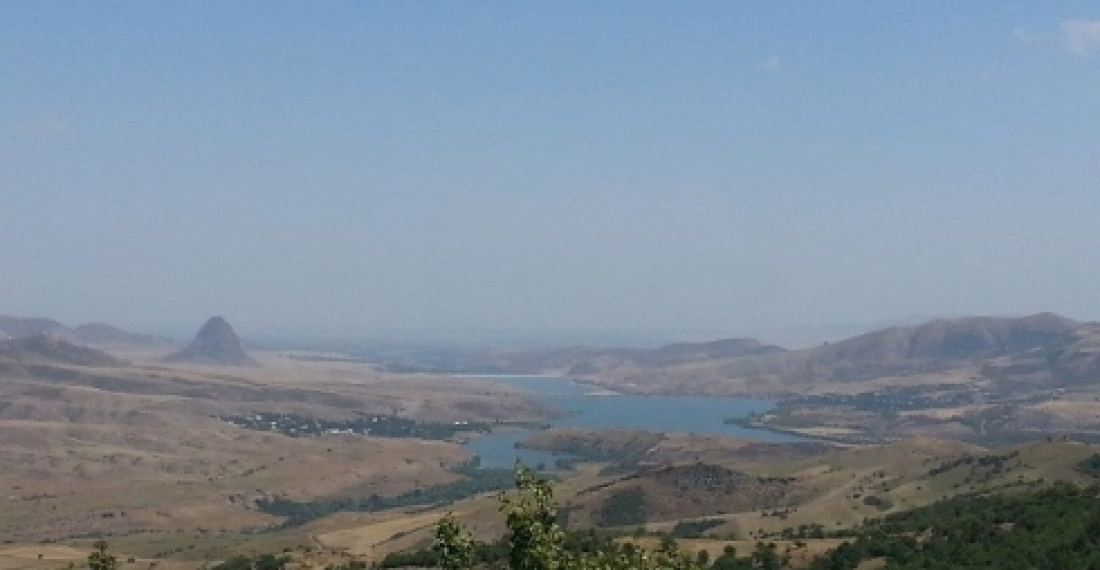Призыв к миру в Карабахе
Мы, нижеподписавшиеся граждане Азербайджана, Армении и других стран требуем от сторон нагорно-карабахского конфликта немедленно прекратить стрельбу и нападения на линии соприкосновения и армяно-азербайджанской границе.
Мы требуем, чтобы одна из сторон, как шаг доброй воли, остановила стрельбу в одностороннем порядке и другая сторона затем сделала то же самое.
Махатма Ганди когда-то сказал: "Око за око оставит всех слепыми." Снайперский выстрел за снайперский выстрел, рейд за рейд на карабахском фронте могут только привести к смерти, ранениям и инвалидности большего числа молодых армян и азербайджанцев. Захват нескольких метров земли или каких-то "стратегических высот" не стоят свежих могил молодых людей и горя их родных и близких.
Карабахское перемирие было согласовано и подписано в мае 1994. В феврале 1995 стороны договорились о мерах по укреплению режима перемирия и наблюдению за ним. Но год от года это не смогло предотвратить смертей десятков военнослужащих. Многие из погибших на прошлой неделе родились уже после перемирия. Понятно, что перемирие само по себе недостаточно и статус кво продолжает вредить жизням сотен тысяч людей.
Поэтому, мы требуем от посредников и сторон конфликта найти новую правовую и практическую формулу, которая могла бы остановить насилие. На встрече в Хельсинки в 2008 г. министры иностранных дел Франции, России и США призвали стороны отвести снайперов с линии соприкосновения. Генсек ООН Пан Ги Мун поддержал эту идею в 2010 г. Мы сожалеем, что это предложение, которое могло спасти десятки жизней, так и не было претворено в жизнь.
Мы также призываем наших сограждан, представителей общественных организаций, государственных и частных СМИ придерживаться этических и профессиональных норм при обсуждении конфликта, отказаться от прославления насилия или призывов к нему, предпринимать настоящие усилия в целях разрешения конфликта мирным путем и требовать от своих властей остановить эскалацию конфликта и начать реальный переговорный процесс для достижения мира.Veronika Aghajanyan, Imagine
Veronika Aghajanyan,Center for Conflict Transformation, Yerevan
Anar K. Ahmadov, Assistant Professor of Comparative Political Economy, Leiden University, The Hague
Rashad Aliyev, freelance journalist, social media and conflict resolution trainer, Baku
Zinaddin Babayev, Imagine Center for Conflict Transformation, Boston
Bayram Balci, visiting scholar, Middle East Program, Carnegie Endowment, Washington
Sofie Bedford, researcher, Center for Russian and Eurasian Studies, Uppsala University
Jean-Baptiste Blanc, University of Lausanne
Laurence Broers, Editor, Caucasus Survey and Research Associate, School of Oriental and African Studies, University of London
Michael Cecire, associate scholar, Foreign Policy Research Institute, Philadelphia
Alexander Cooley, Professor of Political Science at Barnard College, Columbia University, New York
Dzovinar Derderian, University of Michigan, Ann Arbor
John Evans, former U.S. Ambassador to Armenia (2004-2006)
Arzu Geybullayeva, Imagine Center for Conflict Transformation, Istanbul
Philip Ghamagelyan, Imagine Center for Conflict Transformation, Washington
Natalya Ghurbanyan, International Development Expert, Washington
Richard Giragosian, Regional Studies Center, Yerevan
Hamida Giyasbayli, Imagine Center for Conflict Transformation, Baku
Sevil Huseynova, Institute for European Ethnology, Berlin
Ulvi Ismayil, Public Policy Expert, Washington
Irakly Kakabadze, Institute for Multi-Track Diplomacy, Tbilisi
Maria Karapetyan, Rondine Cittadella della Pace, Arezzo
Richard D. Kauzlarich, former US Ambassador to Azerbaijan (1994-1997) and Adjunct Professor School of Policy, Government and International Affairs, George Mason University, Arlington
Arsen Kharatyan, Institute for Multi-Track Diplomacy, Yerevan
Brady Kiesling, former Deputy U.S. Special Negotiator, Minsk Group, Athens
Charles King, Professor of International Affairs and Government, Georgetown University, Washington
Marion Kipiani, Norwegian Helsinki Committee, Tbilisi
Michael Lemmon, former U.S. Ambassador to Armenia (1998-2001)
S. Neil MacFarlane, Professor International Relations and Fellow, St. Anne\'s College, Oxford University
Simon Maghakyan, Lecturer in International Relations, University of Colorado, Denver
Mikail Mamedov, Adjunct Professor, Department of History, George Mason University, Fairfax, VA
Karen Ohanjanyan, Nagorno-Karabakh Committee of \"Helsinki Initiative-92″, Stepanakert
Yelena Osipova, School of International Service, American University, Washington
Mane Papyan, journalist, Vanadzor
Karl Rahder, former CEP Visiting Faculty Fellow at Baku State and Baku Slavic universities, 2004, Naperville
Alakbar Raufoglu, journalist, Washington
Natalya T. Riegg, Professor of Political Science and Global Studies, University of Saint Mary, Leavenworth
Dennis Sammut, Director LINKS and Oxford University
Emil Sanamyan, Editor, The Armenian Reporter, Washington
Emil Souleimanov, Charles University, Prague
Ronald Grigor Suny, Professor of Social and Political History at the University of Michigan
Margarita Tadevosyan, School for Conflict Analysis and Resolution, George Mason University, Arlington
Albert Voskanyan, Center for Civic Initiatives, Stepanakert
Thomas de Waal, Senior Associate, Carnegie Endowment, Washington
Cory Welt, Associate Research Professor of International Affairs, George Washington University, Washington





